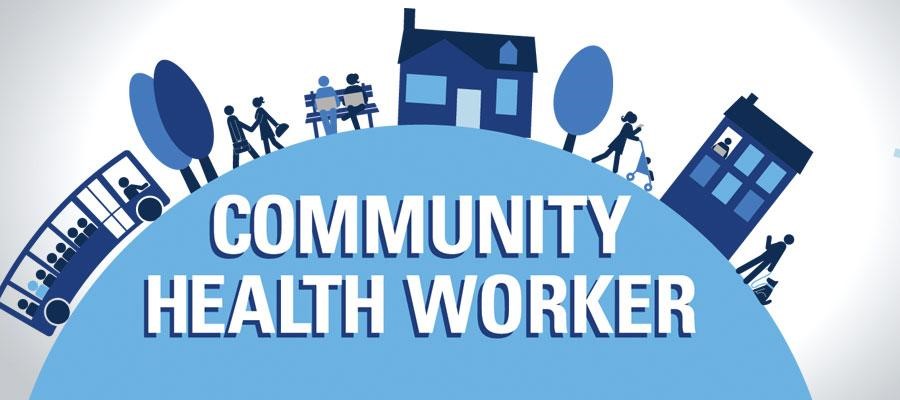Career Tips
Guide On How To Become A Community Health Worker

Community health professionals assist persons in obtaining the health treatments they require. When people have difficulty accessing health care, they frequently seek assistance from specialists such as community health workers. If you want to become a community health worker, you should understand about their roles and educational requirements. In this post, we will discuss the responsibilities of community health workers and the actions you must take to become one.
What is a community health worker?
A community health worker is a public health professional who acts as a liaison between health or social care providers, government institutions, and the community. Community health workers form trusted relationships with the individuals they serve. Creating and sustaining contact is an important aspect of their role. They can help their clients find quality care and educate them about health issues.
Community health professionals can work in both urban and rural settings, and they typically collaborate with underserved groups to assist them find appropriate care. For example, they could explain the benefits of government programs to eligible citizens in an underserved community and assist them in enrolling.
Community health professionals frequently work for non-profit groups or government entities. They collaborate with educators and health care providers to develop initiatives that address community needs.
Other common job titles for community health workers are family advocate, promoter, public health aide, health coach, peer counselor, community health adviser, health interpreter, health educator, liaison, patient navigator, and outreach worker.
A community health worker, like a caseworker, serves a social role, but they focus on health issues. Many people in this role move between social and community health work. Both professions entail establishing contacts with the community and offering assistance.
What does a community health worker do?
A community health worker plans activities to promote a community’s health awareness and self-sufficiency. For example, they offer informal therapy, coordinate outreach, advocacy, social support, and community education. Other common roles are:
- Educating individuals on health issues and teaching them strategies to improve their well-being
- Giving educational presentations in schools and speaking with children, parents and teachers
- Helping people learn how to find and access resources like quality care and health information, health insurance, housing or food
- Putting communities in contact with health care or social services
- Providing health screenings and referrals
- Helping people complete applications for insurance or health services
- Facilitating communication during interactions with health care or social service systems
- Interpreting and translating between health care services providers and patients
- Collecting data and reporting findings to healthcare providers
- Driving patients to their medical appointments
- Providing first aid and health services like blood pressure monitoring
Community health workers’ tasks vary according to their work settings. They often travel within their communities and connect with the local people, visit homes, speak to groups, tour health care facilities and share information.
What skills do you need to be a community health worker?
Here are some skills that are beneficial in a community health worker position:
- Analysis: As a community health worker, you’ll assess programs and determine the needs of people. Choosing the right programs for each individual will require developed analysis skills.
- Teaching: Part of a community health worker’s job involves teaching classes and educating others. To complete these tasks, you should feel comfortable speaking in public and helping people learn important information about health care.
- Interpersonal: As a community health worker, you’ll interact with many people from different backgrounds. Excellent listening and communication skills can help you answer the needs of the people you serve.
- Empathy: Genuine compassion for the people you are serving and the ability to understand their situation can help you make a better connection with them.
- Problem solving: You must be creative in finding ways to improve the health of the community. For example, you may be tasked with arranging health education programs. You might also need to solve problems arising in planning programs, like budget changes or opposition from the members of the community you are serving.
- Persistence: Many initiatives from community health workers, such as advocating for your community health needs, assisting individuals with benefits or distributing social services applications, demand time and endurance.
- Trustworthiness: You’ll learn sensitive information regarding your clients and must keep it confidential. Your honesty and integrity can also encourage individuals to confide in you.
- Resourcefulness: Sometimes, you will have to create a solution to help your community members overcome their issues. Community health workers must put the right resources together to help individuals get access to the necessary care. It is essential to have a firm understanding of all of the available options and to know how to use healthcare, government and social services to achieve this role.
Average salary for a community health worker
A community health worker earns an average of $16.04 per hour. This compensation may vary depending on wage scales, demand, and local economies. The level of education you complete may also influence your wage.
How to become a community health worker
The education requirements for becoming a community health worker vary by position. To become a community health worker, take the following six steps:
- Get your high school diploma. A high school degree or equivalent is the minimum requirement to start a career as a community health worker.
- Receive training. This usually involves around 100 hours of training on the job, and can also include classroom study and job mentoring. After completing some training, you can already start in some positions.
- Earn a bachelor’s degree. Complete a bachelor’s program in health and wellness or public health. An undergraduate degree increases your job prospects. A degree in community health includes courses in biology, medical terminology, anatomy, physiology and epidemiology, which will help you determine the best. You can also aim for a bachelor’s degree in health education to work as a health educator.
- Pursue a specialization with a master’s degree. If you wish to work in a specialized role like a mental health community worker, you can achieve this by completing a master’s degree. Common programs at this level include health education, school health education, public health education or health promotion.
- Get certified. Some employers require their employees to have the Certified Health Education Specialist credential. You can obtain this certification by passing an exam offered by the National Commission for Health Education Credentialing. For health educators with superior education and experience, there is another certification called the Master Certified Health Education Specialist credential.
- Maintain your certification. To maintain certification, you must complete 75 hours of continuing education every five years.












